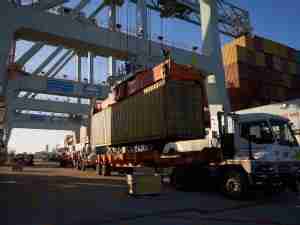The American Public Works Association and its 30,000 members who plan, design, build, maintain, operate and oversee the country’s vast infrastructure networks today said the U.S. House of Representatives must act now to adopt the bipartisan Infrastructure Investment and Jobs Act, or IIJA.
“The time is now for the House to vote on IIJA and get the bill to President Biden,” said APWA President Stan Brown. “The American people need the investments IIJA promises because our roads, bridges, and water systems cannot wait any longer for revitalization, modernization, and replacement.”
“When Congress needed to act to help U.S. citizens during the pandemic, they did so with speed and accuracy,” said APWA CEO Scott Grayson. “We need the same urgency now as our infrastructure networks are failing and our quality of life is increasingly threatened by crumbling roads, increasingly dangerous natural disasters and bridges that can no longer carry loads they were designed to carry decades ago.”
From 2003 to 2017, federal infrastructure spending (20.3 percent) decreased more rapidly than state and local spending (4.5 percent), according to APWA research.
Brown said IIJA aligns well with APWA’s public policy priorities for surface transportation reauthorization, water resiliency, and emergency management because it includes:
While APWA and its members would welcome a larger infrastructure investment, APWA’s president said it’s urgent that the House act on IIJA now.
- A 5-year authorization of surface transportation programs,
- A streamlining of duplicative permitting processes,
- A strengthening of overall infrastructure resiliency to include protection against natural disasters and cyberattacks, and
- Investing to upgrade water and wastewater systems while protecting them from dangerous emerging contaminants.
“IIJA is a great first step,” Brown said. “Estimates are the U.S. infrastructure funding gap will triple by 2040 if we do nothing today. The bipartisan legislation promises to deliver billions to states now. And states need the money now.”
The American Society of Civil Engineers said this year the country’s funding gap increases at a rate of $259 billion per year.

_-_28de80_-_9b2f972cdce64d5f7c8d952d74a16521db70a589_yes.jpg)






